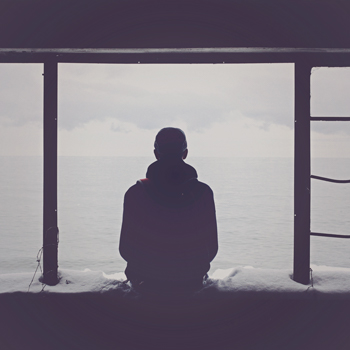 Most of us are afraid of people getting even a glimpse of who we are. Throw an addiction into the mix and we end up hiding every part of ourselves from the world.
Most of us are afraid of people getting even a glimpse of who we are. Throw an addiction into the mix and we end up hiding every part of ourselves from the world.
I get it. When everyone else is seemingly happy and coping with life without any issues (btw – they’re not), we don’t want to be the one who stands out.
So we hide.
But maybe we need to drastically rethink how we approach those parts of ourselves. What if porn is nothing to be ashamed of but a friend who has been there all along?
Here are three reasons why I believe your porn addiction could be the best friend you never knew you had…
1. It shows that you don’t have the answers
One of the things that many of us who’ve been porn addicts have dealt with is constantly trying to find answers to the problem of how to stop looking at porn. We’re tired and depressed and we see any solution as to how to stop as our key goal.
The problem is that nothing seems to work. Yet, instead of thinking outside the box we hunker down and give it another try, thinking that if we just try harder then everything will be alright.
Because we’re so out of control, we try to fix it by finding more control. That’d be fine if it actually worked. But it doesn’t. So, instead of trying to be more certain, our addictions can actually guide us to the point where we realize we don’t have the solution.
This is why rock bottom is such a hopeful place to be. You’ve exhausted everything you thought would work. Rock bottom allows you to have a new type of faith – one where you step into the unknown and try something that may seem crazy, but just might bring you more freedom than you thought was possible.
[ctt title=”Rock bottom allows you to have a new type of faith” tweet=”‘Rock bottom allows you to have a new type of faith’ – Rock bottom allows you to have a new type of faith (by @X3church @PaulRobinson33)” coverup=”bEHb9″]
2. It shows you where you are in pain
It’s really easy to believe the reason we view porn repeatedly is because we are a bad person, or that we have a sinful nature or that this is simply the “cross we have to carry.”
But this begs the question, what does it mean to be saved? If we’re saved, why do we keep doing what we do? Why, like Paul asks, do we do the things we don’t want to do and don’t do what we would like to do? Is salvation a one-off event, or is it more like a pilgrimage?
Are we supposed to always struggle with porn because we believe somehow this challenge is keeping us humble or centered on God? Well, there’s an easy question to ask to find out.
Is it working?
Perhaps, we tell ourselves that we’ll always struggle because it means we don’t have to truly be free? Think about it, if I accept that I will always struggle with porn then I don’t have to confront the pain and wounds that are leading me down this road.
We maintain a morsel of control amongst uncontrollable urges we face every day.
But what if we decided to confront those things head on and faced them in spite of our fears? Our addictions can shine a light on those areas that we are afraid of being exposed if we really want them to. Or, we can continue with the belief that this is just something we will struggle with.
[shortcode-variables slug=”mypilgrimage-inline”]For me at least, I know which one I would rather choose.
3. It gives you a chance to love/accept yourself
When we push those underlying issues further and further down, something happens to who we are at our very core.
In a world where others’ perceptions of us are so crucial to survival, we tend to only highlight and add filters to the parts of us that we don’t mind others seeing. It’s a continuous game that we’re all playing… but none of us are really winning.
What would it look like if we finally began to accept those dark parts of ourselves and brought them to the light? What if we loved everything about us? Even the porn addict in us?
Imagine that… I look at porn but I am learning to love that part of me. When we view that part of ourselves as a part of us that is in pain rather than just an inherently evil or bad person, it will change everything.
You can learn to have compassion for the addict in you. You can stop hating that part of you. We’re so willing to offer that compassion to others but reluctant when it comes to ourselves. Why do we do that? It just doesn’t make sense.
We have to learn to accept all parts of ourselves, because when we feel ashamed about a part of us, we feel ashamed about all of us.
So – if we truly want to be free – we may need to change something radical about how we believe we find freedom, and that may start with changing something radical about who we think we are.
Start to accept that what we’ve been doing hasn’t worked.
Learn to believe that you are not a bad person, just a person in pain.
And learn to love your whole self, especially your pain.
Then start to see who your real friends are. [shortcode-variables slug=”my-pilgrimage-bottom”]

